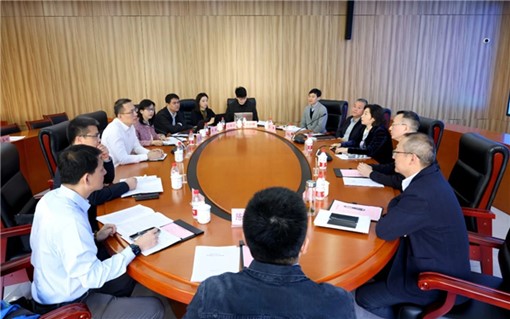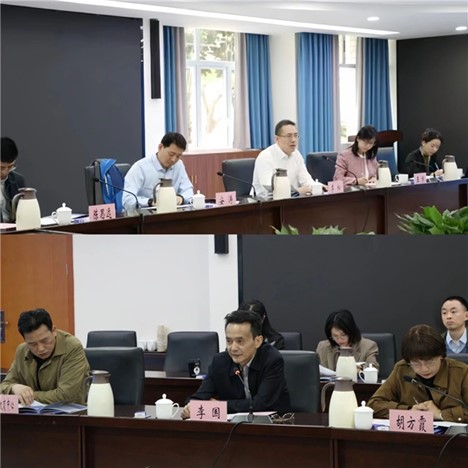 To comprehensively implement the Ministry of Education's 2024 work priorities and advance the key tasks of Open University of China (OUC, akas Seniors University of China, SUC) in 2024, including the development of the Credit Bank and SUC, promoting lifelong learning for all, and serving the construction of a leading education nation, from 20th to 23rd March, a delegation consisting of members of the Party Committee and Vice President Li Song from OUC traveled to Sichuan and Chongqing regions to conduct a specialized investigation on the Credit Bank and Seniors University construction.
To comprehensively implement the Ministry of Education's 2024 work priorities and advance the key tasks of Open University of China (OUC, akas Seniors University of China, SUC) in 2024, including the development of the Credit Bank and SUC, promoting lifelong learning for all, and serving the construction of a leading education nation, from 20th to 23rd March, a delegation consisting of members of the Party Committee and Vice President Li Song from OUC traveled to Sichuan and Chongqing regions to conduct a specialized investigation on the Credit Bank and Seniors University construction.

Li Song emphasised that the OUC system has conducted solid research on the connotation construction of the Credit Bank and other aspects, achieving fruitful results. With the current strategic deployment to build a learning society and country where lifelong learning is pursued by all, new tasks and requirements have been proposed for advancing the Credit Bank work. In this context, it is essential to integrate past system designs, research outcomes, and practical challenges systematically and address existing issues with targeted solutions, break through bottlenecks and continuously expand the Credit Bank's role in serving the construction of a learning society. Concerning the construction of the Seniors University, Li Song highlighted the need to further leverage the strength of the education system, harness the power of digitalisation, mobilize social resources extensively, capitalize on individual strengths, collaborate and share resources, actively respond to the national ageing population strategy, and jointly explore new models for elderly education development.
In Chengdu, the research team held discussions with Wang Ling, secretary of the Party Committee and president of Sichuan Open University (Sichuan OU), Wang Tao, member of the Party Committee and vice President of Sichuan OU, and relevant personnel responsible for the Credit Bank and elderly education. The team received an overview of the overall operation of Sichuan OU, the basic status, main challenges, and development suggestions concerning the construction of the Credit Bank and elderly education work. They also engaged in group discussions on specific challenges encountered during the implementation of the Credit Bank and elderly education work. Additionally, the team conducted a field visit to Huayang Seniors University.

In Chongqing, the research team conducted specialized exchanges with Guo Qing, secretary of the Party Committee of Chongqing Open University (Chongqing OU), Liu Changxiong, vice president of Chongqing OU, Li Guo, deputy secretary of the Party Committee and president of Chongqing OU, Hu Fangxia, member of the Party Committee and vice President of Chongqing OU, Nan Xuguang, member of the Party Committee and vice president of Chongqing OU, and relevant personnel responsible for Credit Bank and the Academic Affairs Office. Li Guo provided an overview of the overall operation of Chongqing OU, while Hu Fangxia detailed the status of Chongqing Credit Bank's construction in terms of effectiveness, typical applications, information platform, regional cooperation, and shared experiences in the construction of the Credit Bank within the Chengdu-Chongqing Twin Cities Economic Circle and the Credit Mutual Recognition Community in the western region. In-depth discussions were carried out on standard construction, platform security, and other aspects. The research team also conducted field visits to Chongqing Vocational College of Transportation and Shancheng Seniors University in Yuzhong District of Chongqing.
The investigation was attended by Wang Ran, executive deputy director of Chongqing OU Credit Bank (Learning Outcomes Accreditation Centre); Ren Weipeng, deputy director of Academic Affairs Centre of Chongqing OU; and Pan Yong, chairman of Bell & Horn Education and Technology (Beijing) Co., Ltd.
Written by Sun Jingyi, OUC; photos by Sichuan OU and Chongqing OU